Rickie-Lee Hewson has been denied the thing she desperately wants – her 14-year fight to not have a baby
Rickie-Lee Hewson has known since she was a teen that she doesn’t want to be a biological mother. But doctors are denying her the surgery that would make it impossible to fall pregnant.
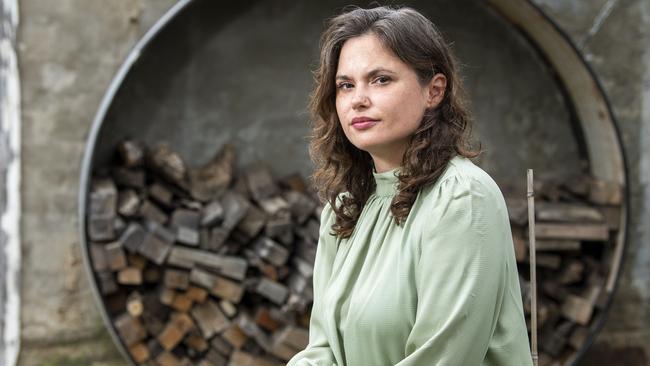
Lifestyle
Don't miss out on the headlines from Lifestyle. Followed categories will be added to My News.
Rickie-Lee Hewson desperately doesn’t want a baby.
It’s not that she doesn’t love kids – she lives with her partner’s five-year-old daughter, who she adores, and is studying to be a schoolteacher. She’s just known, since the age of 19, that she doesn’t want to be a biological mother.
For years, the 34-year-old has tried to find a doctor who will perform sterilisation surgery, making it impossible to fall pregnant. But specialist after specialist has told her they will not give her a tubal ligation, which she says will make her “happy, healthy and productive”, until she has had a child – something that will never happen.
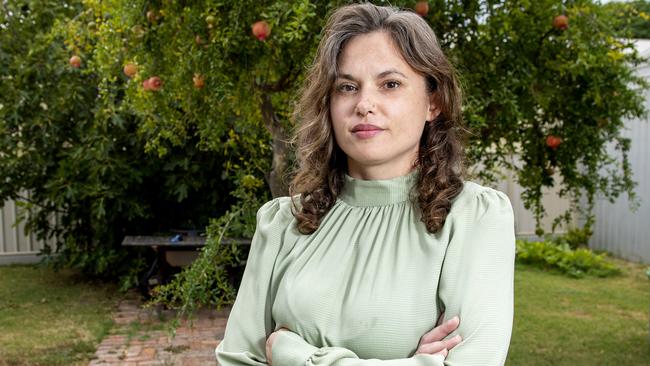
“It was a real shock, I guess, at 19 to be told ‘no’ but even more of a shock to be a grown, adult woman making decisions to not have a child to be told you can’t,” says Ms Hewson, who suffers every month through a long and debilitating reminder that she is being denied what she truly wants for her own body.
“It feels like I’m being told I don’t know what I want. I’m 34 – I know I’m still young but I know that I’m not going to change my mind.”
Ms Hewson loves co-parenting partner Mark Panayotidis’s five-year-old daughter Mia. But meeting and falling in love with the “sweetest, easiest kid” only validated her own determination to not fall pregnant.
“I saw Mark with Mia and I fell in love with Mia and I thought if anything was going to convince me that I wanted a kid, it would be this dynamic right here. He is an amazing father, he loves being a father to Mia,” says Ms Hewson, who lives with Mr Panayotidis in Queenstown, where Mia stays with them three nights a week.
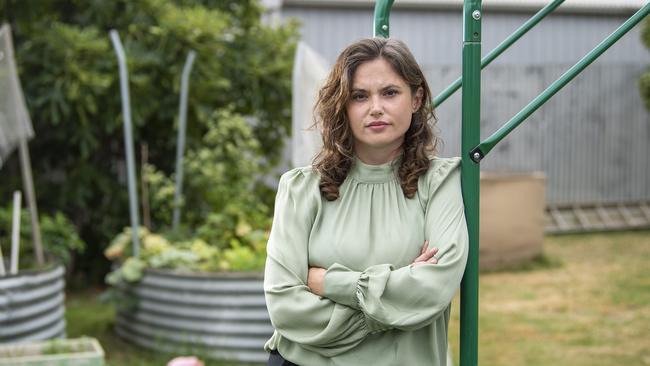
“The happiest days of my life in the last few recent years have been the days where the three of us get to go to the pool together, go to the park, go get lunch, hang out and watch movies, do crafts – that’s my happy place these days.
“But it confirms to me that I don’t need a child of my own. This hasn’t changed my mind, it’s just cemented it for me.”
The first request for medical help came when Ms Hewson was just 19. Not surprisingly, her GP told her she was far too young to consider making herself sterile.
At 27, after being batted away by other specialists in the public health system, her personal nightmare came true – she fell pregnant to her then-boyfriend of nine years, despite taking the pill, and had an abortion.
Once again, she begged to have surgery to make falling pregnant a second time an impossibility. This time, she was told by experts at the abortion clinic that no doctor would operate on a woman under the age of 30. Instead, she was given a Mirena – a form of contraception that is inserted into the uterus, in a procedure that was excruciating for Ms Hewson, and lasts five years.
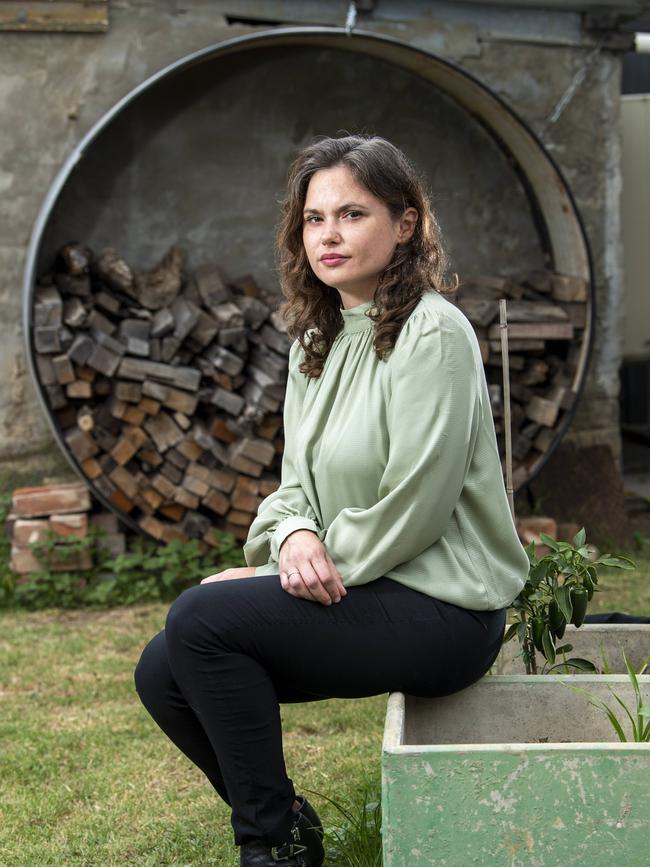
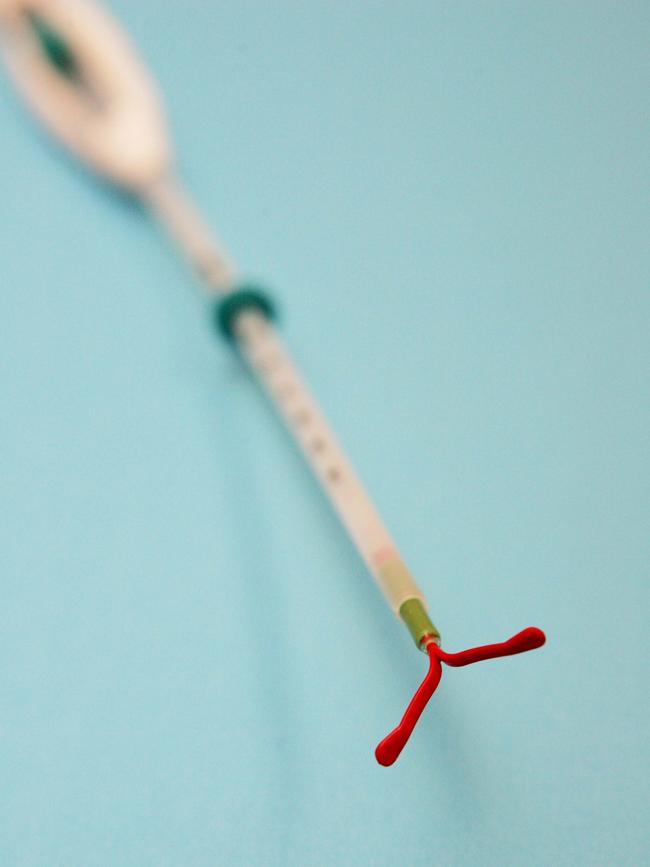
“I thought ‘in five years, I’ll be 32 and maybe then a doctor will take me seriously,” says Ms Hewson, who lives in constant dread and anxiety that she will fall pregnant again.
“When my Mirena ran out at 32 I went to the doctor again but it was the same story – they wouldn’t do it until I had a baby.
“When you’re in your 30s, society expects you to be able to make all the decisions you need to make to be happy, healthy and productive. And here I am being told that a decision that I know will help me is not a decision that I’m allowed to make for myself.”
Ms Hewson, who is a part-time teaching student at the University of South Australia and also works at the Woodville Hotel, says she is not alone. She is connected to an online community of South Australian women who do not want to have their own children and are similarly frustrated by the restrictions they face.
To them, the fact that other women may regret taking action to prevent pregnancy is not a factor in their decision-making.
“I don’t think that you can use another woman’s potential regret over the procedure to tell me that I can’t have it done. I’ve felt like this for almost two decades now … to be told as an adult ‘you don’t know what you want or you might change your mind’ is infantilising, it’s making me feel like a child again,” she says.
“My body, my choice doesn’t extend to all of my choices.”
AMA(SA) vice president Associate Professor Peter Subramaniam said the organisation “cannot comment on individual cases” such as Ms Hewson’s.
But he said the AMA(SA)’s position was that women had autonomy over their bodies and their reproductive rights.
“This reflects the AMA Position Statement on Sexual and Reproductive Health,” he said.
‘Tubal ligation is a procedure available in both the public and private systems in South Australia.’





